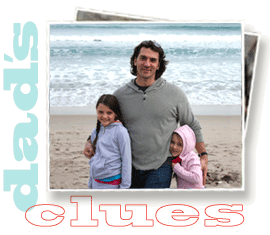Superheroes with the power to read, salt and pepper shakers that talk and toe tapping strategy songs are a large part of my day. They serve as a means to help preschoolers share, cooperate and enjoy their environment that they are a part of.
So, how do you talk to your child about troubling and scary events that infrequently occur in the real world?
Less is more.
The best course is to answer the questions in a clear, concise way. Don’t offer up extra information. And for the very little ones, it’s best to shield them from what’s happening all together (an easy way to do this is to avoid having the news on when they’re in the room).
As kids move into grade school, they are much more aware of the world outside of themselves. They also have great difficulty understanding the distance between that world and themselves. How they see the world will depend on how we, as parents, help to paint the picture.
When it comes to the tragedies that they’ll inevitably hear about, it’s best to focus on the facts and what you can do to help. One of the workers at my daughter’s school lost a large portion of his family in an earthquake. We talked about it as a family and focused on what we could do to help. My daughter wrote a letter telling him how sorry she was and we helped collect food and supplies for the people affected. The worst part of these situations for kids is their feeling of powerlessness, so enabling them to take control by being proactive about helping is important.

Here are 3 more tips to help you talk to your kids about topics you may tend to avoid:
- Listen first, then talk. With the less is more philosophy, listening to our children in an empathetic, interested way is of utmost importance. Find out what they want to know, what questions they have, and take cues from the way they are talking. Do they want a hug? Reassurance? Answers?
- Be truthful, calm and explain the situation. If children ask about a specific situation, such as natural disasters, a good answer is: “Yes, this was a terrible tragedy but it is very unlikely that it would happen here. We prepare ourselves for emergencies such as these. We have a lot of people whose job it is to keep us safe.” Even kids as old as twelve need to be reassured.
- Make them feel safe. Many specialist’s believe that it’s better to apologize and explain if an improbable, traumatic event does occur rather than have kids live with the fear that something “could” happen.
Please share some tips that have helped your little ones feel more secure after a difficult time, because we’re all in this together!


















